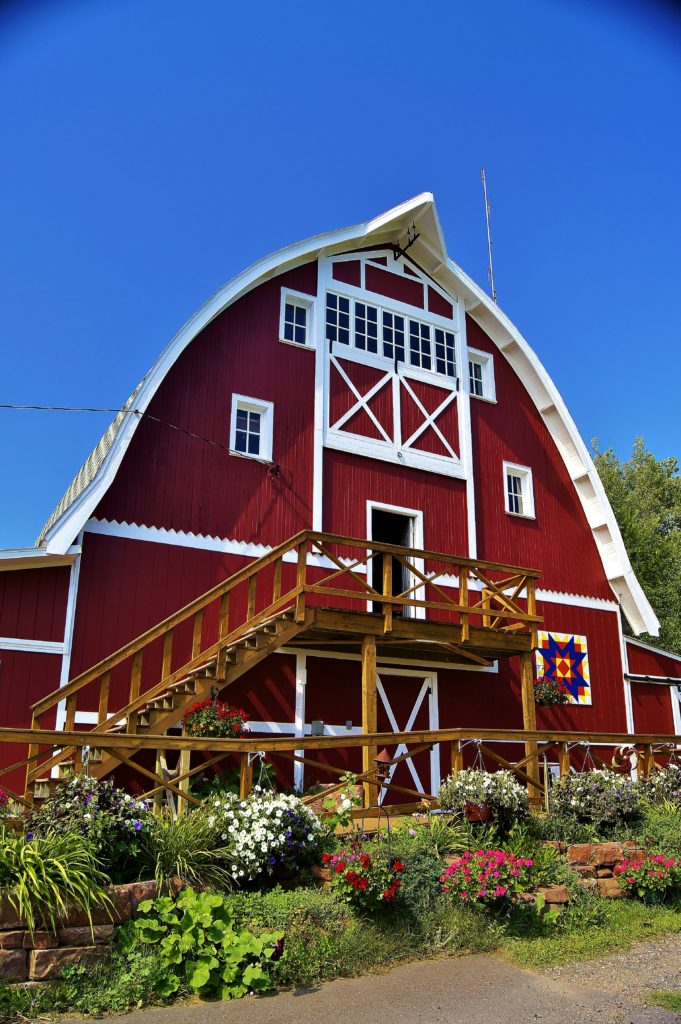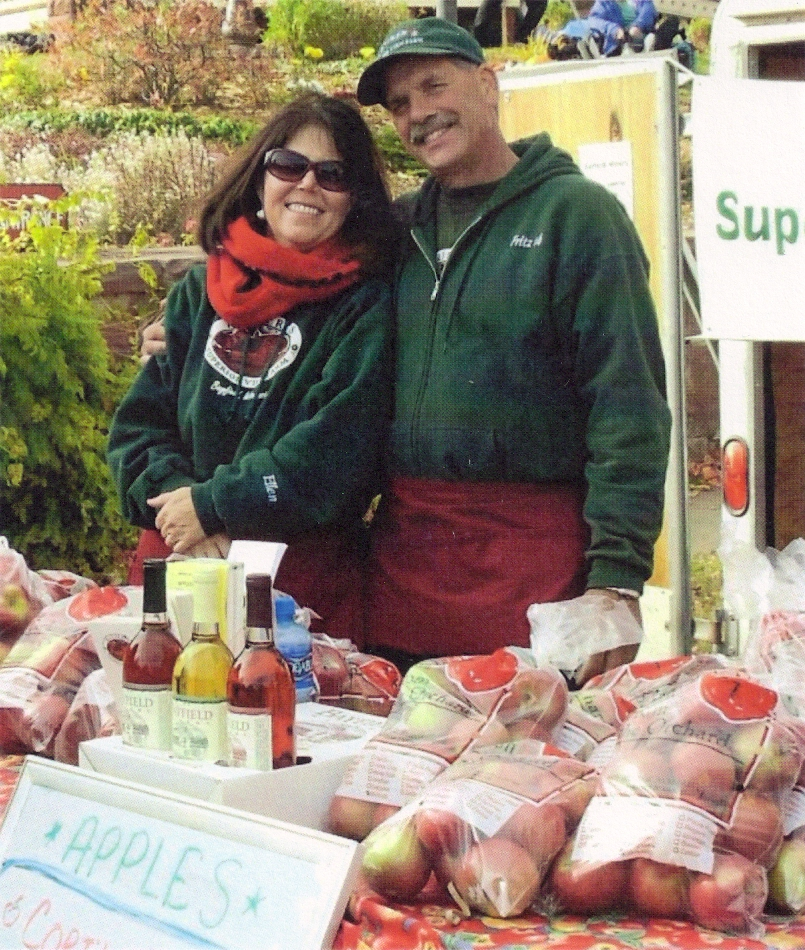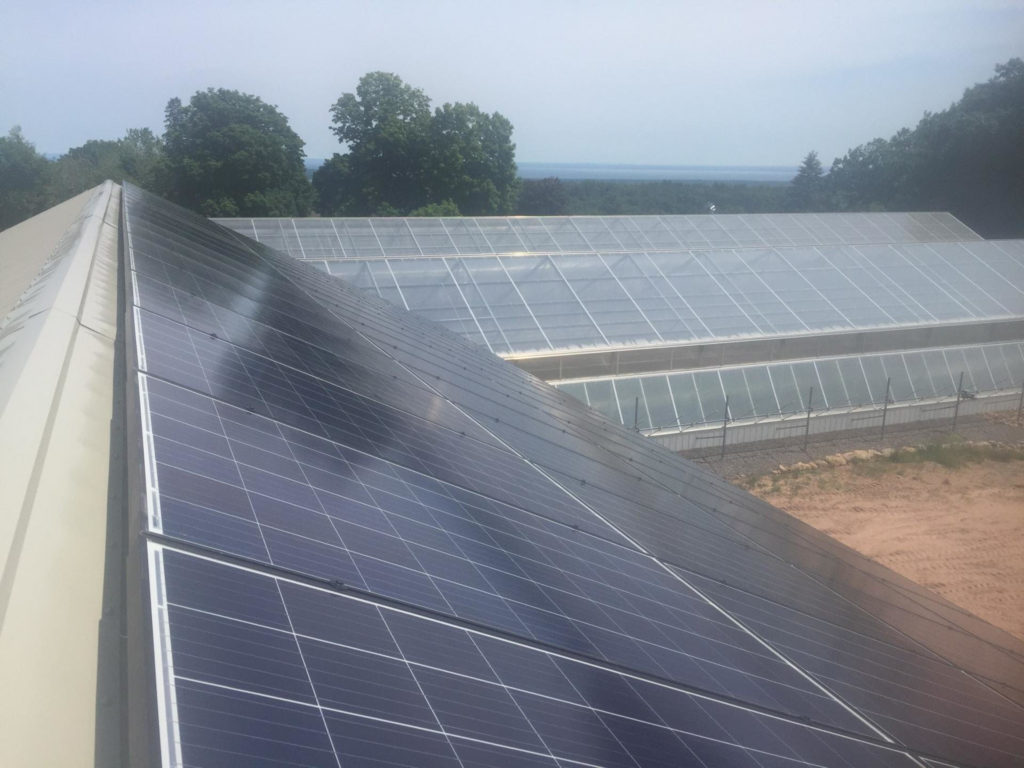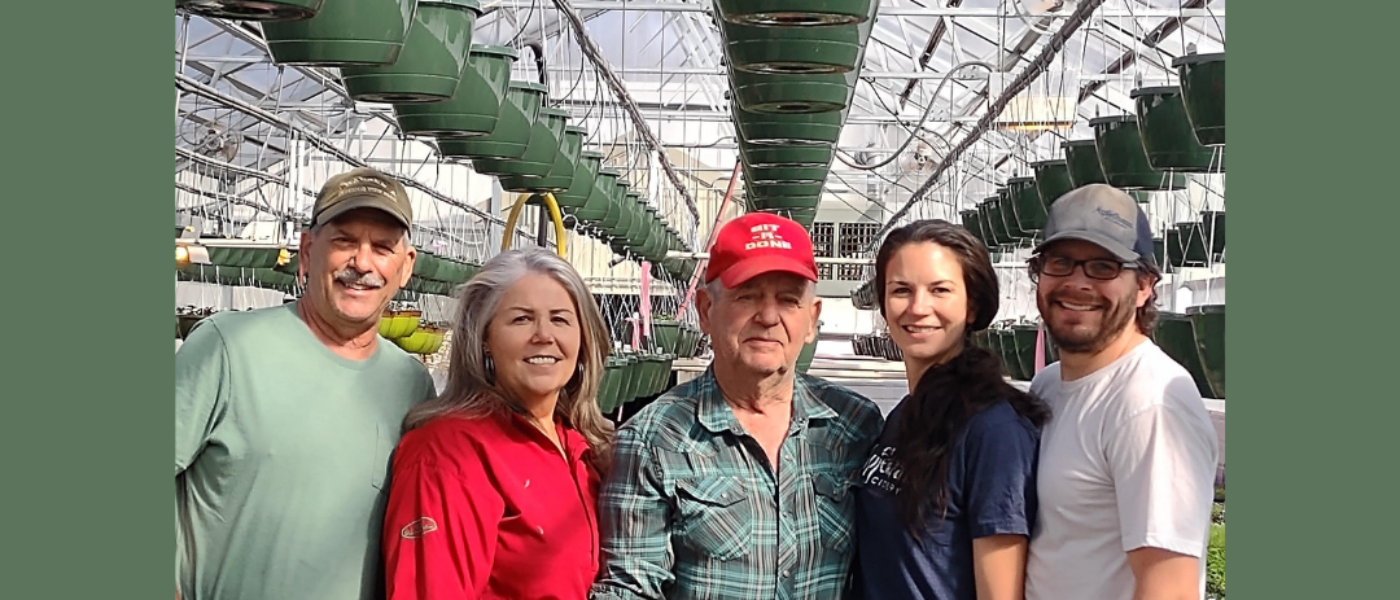Five generations of Hausers have worked this land overlooking the village of Bayfield and Lake Superior’s Chequamegon Bay starting with John F. Hauser, a newly minted graduate of the University of Wisconsin’s horticulture program in 1908. At the time, John was already the third Hauser generation farming after his grandfather and father farmed in Switzerland before immigrating to the United States. He dedicated those early years to coaxing strawberries, potatoes and perennials from the newly turned earth. In 1928, John’s son Dawson established the heirloom apple orchard that Superior View is now famous for. Those seeds are part of the heritage that gave rise to the Bayfield Apple Festival in 1962, an event recognized today as one of the “Top Ten Autumn Festivals in North America” by the Society of American Travel Writers, drawing 60,000 visitors to the tiny hamlet of 459 residents the first weekend of each October. During his tenure, Dawson’s son Jim Sr (generation number three, if you’ve lost count) continued to increase the farm’s scale and marketing channels while also expanding into tart cherries, and nursery sales of flowers and vegetable starts.

Hauser’s Superior View Farm’s 1920’s Sears and Roebuck mail order kit barn.
Fritz took over in 2001 and after 21 years at the helm, he and his wife, Ellen, have just handed the reins over to the fifth generation, their son Dane and his new wife, Emma. After an early career in carpentry, Dane returned to the farm to continue the family legacy. The opportunity to put his own mark on the farm’s history, along with the independence farming affords, proved the right combination to carry the lineage forward. He’s already making his mark by taking on the wholesale greenhouses and introducing handcrafted hard cider to the farm’s offerings, accompanied by a beautiful new tasting room (in the works).

Fritz and Ellen Hauser at one of their farm stands during the Bayfield Apple Festival
While paternal lineage is the cultural norm in farming, Ellen emphasizes the role strong women have always played in the life of Superior View Farms. “I think one of the reasons that this farm has continued as long as it has is because of the farm women. Fritz’s mother, his grandmother, his great grandmother… They all worked hard on the farm, in addition to raising children and keeping a home. We are thrilled that Dane now also has that strong emotional and mental support, which is really important when you’re trying to navigate not only the farm itself but the family within it.”
Though reluctant to take credit, Ellen has made her own unique contribution to the farm’s trajectory. As a business faculty, dean, and administrator at a nearby technical college, she has applied her acumen to managing the farm. Bookkeeping, grant implementation, employee management, marketing, risk management, filing taxes–all of these have benefitted from her skill set, further improving the farm’s resilience. As an off-farm employee, she also brought needed financial stability including health and life insurance, a retirement plan, and a stable income source to the equation. It’s a little-known fact that in 2020, median U.S. farm income was -$1,129. Yes, these farms actually lost money, which is why 52% of farms have at least one partner who works off-farm.

Aplfelhaus handcrafted cider varieties
While most farm owners aspire to pass their businesses on to future generations, it’s becoming increasingly rare to do so. The cultural, societal, and financial challenges of farming today have turned a generation of sons and daughters away from the land in favor of more promising prospects. The Small Business Association estimates that only 30% of family businesses pass into the hands of the family and by the third generation, that figure falls to 15%. Even when the next generation is onboard, a successful transfer can hinge upon the ability to reconcile divergent values, philosophies, and risk tolerance, not to mention unwelcome conversations around death and finances. As Ellen observed, “It’s always an interesting emotional dynamic for everybody involved and I think that’s often what discourages people from making succession plans. It can dredge up a lot of good and maybe not so good feelings and some hard questions need to be discussed. They’re not always easy conversations to have.”
The Small Business Association estimates that only 30% of family businesses pass into the hands of the family and by the third generation, that figure falls to 15%.
The result of these challenges is that between 50% and 79% of farmers lack a succession plan. To avoid such conversations carries its own peril though; the farm will pass on one way or another. Without a succession plan in place, the resultant void often creates insurmountable barriers for the next generation, often resulting in property liquidation and sibling estrangement. Fritz was quick to praise his siblings’ equanimity during his own transition to ownership. “My brothers and sisters had all been successful and did not suggest they were owed part of the farm. They’ve always known the farm is “home” and they are wonderful enough to come back often to help, which makes them a part of its success. The years you’re working it [before you take over], maybe the pay isn’t so great, but part of your pay is that you’re going to get a bigger slice when it gets turned over.”
Opposing financial needs also require careful negotiation. Often the sale of the farm represents the outgoing owners’ primary, or too often only, nest egg. At the same time, the ability to purchase a property needs to be attainable for beginning farmers with few financial resources. Lack of credit and funds, coupled with little to no collateral, present considerable barriers for young farmers trying to establish themselves. Family transfer is one of the few remaining mechanisms available to young farmers.
Given the potential pitfalls, Fritz and Ellen intentionally set out to safeguard not only their destiny but Dane and Emma’s as well. When asked how such a formidable task began, Fritz recalls an annual fruit and vegetable conference where an attorney offered a presentation about succession plans. That attorney eventually shepherded the two generations through the journey of creating a succession plan that was agreeable to all parties. As land is typically a farm’s most valuable asset, an LLC was created to ensure the land would remain in the family’s possession regardless of the business’ fate. As owner of the business, Dane rents the land and owns the buildings and infrastructure. Fritz and Ellen were quick to stress the benefits of working with an attorney specializing in farm estate planning, although the option isn’t always available to farmers. They also stressed the importance of a collaborative team of experts, including their banker and accountant.
Both also emphasized the necessity to start the process well in advance. Long before the formal handover, Ellen began to familiarize Dane with the business side of the operation. Accounts receivable, account payable, loans, budgets, contracts–he was spared nothing. “I try to talk with him about many things and say, ‘I not only want you to see this, but approve it.’ We attempted to plan this far enough ahead so he could mentally and emotionally prepare for it as well. He’s now in a place where he’s ready to be the owner,” Ellen exclaimed. The couple also described their own trepidation when they inherited the farm from Fritz’ parents. As Ellen recalled, “My biggest concern was really, ‘Wow, I don’t want us to be the last generation of the farm.’ When you have that history, you think about that.” That recognition motivated Fritz and Ellen to prepare the business to be financially resilient before Dane assumed responsibilities.
One of the pillars of that resilience was a commitment to pay off all debt; however, new enterprises that Dane was interested in required new infrastructure. Wholesale greenhouses, with solar panels on the roofs that power the farm’s electrical draw, and a new building housing a commercial kitchen, office space and heated storage space would certainly necessitate a combination of loans and cost share grants. With two generations impacted by such monumental decisions, agreement among all parties is essential. As Fritz and Ellen explained, “We had to sit down at that point with Dane and say, ‘Ok, if this is something you want for your future, this is what it’s going to mean,’ and we remember the day he came in, and said, ’I need to tell you that I’m committed to this. If you commit to this, I will commit to this.’”

Polycarbon nursery greenhouse
With that commitment in place, the farm invested in the wholesale greenhouses and Dane decided his generation’s additional contribution to the farm would include handcrafted hard cider. Ellen explains, “We adapted our original blueprints to add a cider production facility and a second floor for a tasting room. We had committed a certain amount of our own money to this building as a gift to the farm; however, anything else was going to have to be financed, so Dane was aware of that since it would mean more debt for him. We’ve always been big believers that if we could support the beginning of these new ventures, we would try.”

Solar panels provide power
Fritz and Ellen recognized early on that for Dane to assume a sense of ownership, he needed to follow his own convictions and make his own decisions–a test for parents at any age. “You can’t say, ‘No, don’t do that–it doesn’t or won’t work,’” Fritz noted. “The key is respecting each generation’s wealth of knowledge and history while also letting go and being open to new ways and ideas. Although, honestly, it’s definitely not always easy!”
Relinquishing the farm is too often reduced to a simple transaction; rarely is the impact on the outgoing generation’s psyche appreciated. “If I hand over control of my farm, who am I now?” and “I always thought I’d depart this world on the back of my John Deere in the back 40 acres,” are comments often uttered in only the most private spaces. Connection to outside interests and community, the support of loved ones, and reflecting on one’s contributions to a larger narrative can all buffer the retiring farmer during the transition. When asked how his dad, Jim Sr., fared when he handed the reins on to Fritz, Fritz noted that Jim spent his lifetime farming, but also cultivated interests and relationships, not for the eventuality of retirement but because it constitutes a life well spent. Now, at 87 years young, Jim Sr. continues to contribute at the farm every day and relishes his role. As Fritz remarked, “Now dad says, ‘Oh, I’m just the hired hand. I don’t make decisions anymore,’” with a distinct twinkle in his eye. It’s clear that the apple doesn’t fall far from the tree. Dane’s got plenty of support as he propels this farm and family heritage into the future.
Visit the Superior View Farms website Introduction to Farm Succession Planning, Oregon State University Extension Service Cultivating Your Farm's Future, Farm Management Division of Extension, University of Wisconsin Farm Succession Planning, Beginningfarmers.org Creative Succession Planning featuring Hannah Newcomb and Hiu Newcomb; Our Farms, Our Future Podcast, Sustainable Agricultural Research and Education (SARE)



